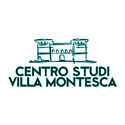Vulnerable and marginalized adults are the target groups who more need the participation in LLL. Despite the policy agenda of many EU countries seeks to upgrade their skills, lots of studies have demonstrated that the worse the social situation, the less likely people are to take part LLL. This framework proves that adult learning is a complex process for vulnerable groups: exclusion from education is a phenomenon linked with exclusion from society. Processes for facilitating the access to LLL (motivating and empowering them to grow in self-confidence and trust) and for giving them basic skills, which are the basis of any kind of learning process (personal, social and self-management skills) are needed. The VISTA project intends to adopt and experiment the participatory video (PV) method in order to concretely help disadvantaged people. The idea behind is that making a video could be easy and accessible (video is an expanding technology in teaching and learning) and is a way of bringing people together to explore issues, empowering and enabling them to take their own actions and to communicate. As such, PV can be a highly effective tool to engage and mobilise marginalised people and to help them to implement their own forms of sustainable development. The methodology for achieving the results has three milestones:
- research on the modern use of the Video methodologies for adult education
- pilot workshops (one in each country) for adult educators in order to give them the competences needed in a process of PV facilitation
- experimentation of the method in EU laboratories with disadvantaged (Italy-unemployed with social hardship; Lithuania-Rom; UK-people with mental disabilities; Greece-adults with physical disabilities; Spain-long-term unemployed; Germany-migrants) through which opportunities for social/professional instatement will be built.
A continuous process of dissemination and exploitation of the results will be realized during all the project lifetime

